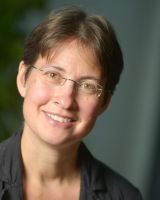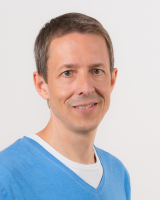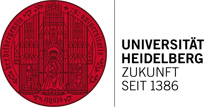Two Additional ERC Grants for Heidelberg
Mathematician Prof. Dr Anna Wienhard and molecular biologist Prof. Dr Henrik Kaessmann have been awarded a prestigious grant of the European Research Council (ERC) for outstanding scientists, an ERC Advanced Grant. The ERC is making approx. two million euros available to Prof. Wienhard, who teaches and does research work at the Mathematical Institute of Heidelberg University, for her project on symmetries in mathematics. Prof. Kaessmann from the Center for Molecular Biology of Heidelberg University (ZMBH) is to receive approx. 2.5 million euros for a research project on the evolution of the brain of vertebrates. The two grants will run over a period of five years.

Photo: HITS / Gülay Keskin
The ERC is funding Prof. Wienhard’s research for the second time. In 2014 she received an ERC Consolidator Grant for her work on symmetries and deformation spaces of geometric structures. The present project “PosLieRep – Positivity in Lie Groups and Representation Varieties” builds on the previous one and focuses on Lie groups, which play a central role in many fields of mathematics and are an important tool in theoretical physics. Lie groups describe the symmetries of a space or a system. An important structure in Lie groups is total positivity, which was developed around 1930 in connection with vibrations of mechanical systems. It has many applications in discrete mathematics, in the theory of stochastic processes and in representation theory. Prof. Wienhard has discovered new positivity structures that generalise the total positivity in Lie groups, and the PosLieRep project is to study these new structures. “We hope to gain new insights from this, in particular on the theory of higher Teichmüller spaces. At the same time, this field of research opens up interesting new perspectives on further areas, for instance super-symmetrical field theories in physics,” the scientist explains.

Photo: Sabine Arndt
In the project “VerteBrain – The Ancestral Vertebrate Brain and its Cellular Diversification During Evolution” funded by the ERC Advanced Grant, Prof. Kaessmann will study the evolutionary origins of the vertebrate brain. It is the third grant that the European Research Council has awarded him for his research. The two previous projects focused on the evolution of gene expression in adult mammalian organs and the genetic control of organ development in mammals. “Now we will investigate the fundamental question of how the vertebrate brain and its structures originally arose,” the scientist says. Modern genomic single-cell sequencing technologies will be used to reconstruct the cellular composition and the underlying genetic programmes of the ancestral brain, which existed about 600 million years ago in common vertebrate ancestors. At the same time, Prof. Kaessmann and his team want to trace the structural and functional diversification of the brain during its subsequent evolution up to the present in all major vertebrate lineages. “Among other things, we hope to come to understand the origin of the neocortex, which ultimately enabled human beings to develop particularly complex cognitive abilities,” says the Heidelberg scientist.
The ERC Advanced Grant goes to outstanding established researchers who want to implement ground-breaking and, in a positive sense, risky research projects. The financial support lasts for five years.

